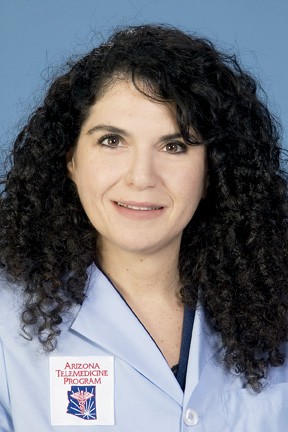Despite recent victories, a UA researcher’s medical marijuana study has more hurdles ahead.
The study, approved three years ago by the Food and Drug Administration, received approval from the Public Health Service earlier this month to move forward. But researchers cannot begin work without funding or a permit from the U.S. Drug Enforcement Administration.
Led by Dr. Sue Sisley of the UA College of Medicine — Phoenix, the study would include 70 veterans suffering from post-traumatic stress disorder and would examine how specific doses of marijuana could be used to control their symptoms. Sisley said she had hoped to begin the study this summer, but the DEA will not grant a permit until there is a designated place to conduct the research and store the supply of medical marijuana provided by the National Institute on Drug Abuse.
“The frustrating thing now is … I haven’t been able to get any information from the university about where they will actually allow this marijuana study drug to be stored,” Sisley said. “They have to find a home for it somewhere.”
The university is in the process of working with Sisley on final steps to move forward with the study, said Jennifer Barton, UA interim vice president for research. Although the UA staff will not designate a location, Barton said staff will work with Sisley to determine an appropriate size and type of space.
“In terms of working with controlled substances and doing these types of pilot clinical trials, we do that all the time here. It’s nothing unusual or novel,” Barton said. “We are pretty proud of our ability to conduct these complex trials, and we have the structures in place. We’re looking forward to working with [Sisley].”
Sisley said that if she receives a DEA permit, she would still need funding for the study, which she had hoped would come from House Bill 2333. The bill, proposed by Rep. Ethan Orr (R-District 9), would have allowed Sisley to use some of the $6.5 million surplus of state funds that accumulated in the Arizona Department of Health Services as a result of dispensary and medical marijuana cardholder fees.
However, Sen. Kimberly Yee (R-District 10), who chairs the Senate Education Committee, did not give the bill a committee hearing, essentially killing it. Orr said Yee did not return his phone calls to discuss the bill, which passed through the House by a vote of 52-5.
“I worked extraordinarily hard with both parties and I got it out of the House,” Orr said. “I certainly think we should understand the drug that we’re prescribing. Whether you’re for recreational use or against recreational use, that doesn’t mean you shouldn’t understand it.”
Orr said he is looking at bills in the House, and that if any of them are relevant, he may try and add his language onto them.
Yee said there are a number of reasons H.B. 2333 did not get a hearing, which includes a conflict between H.B. 2333 and Senate Bill 1389, a bill she was sponsoring. S.B. 1389 would use the money from the fund to discourage recreational use of marijuana among the general population, especially youth.
“When you have another bill that conflicts with that approach, using the same dollars, you have to make a decision between the two,” Yee said.
Yee said she sponsored a bill last year that would allow for marijuana research at universities; however, it was her understanding that Sisley’s study would be paid for through federal funds and public donations, not state dollars.
“My bill allowed for this research project to happen,” Yee said. “I have questioned why all of a sudden by not hearing this bill, I don’t support research, particularly for veterans. That’s not the case.”
Ricardo Pereyda, a former UA student and a combat veteran, wrote an open letter to the Arizona House and Senate in response to Yee’s blockage of the bill. Pereyda said he almost killed himself because he didn’t know how to cope with the transition from soldier to civilian, and that for the last four years, he’s smoked cannabis on a daily basis as a form of medication.
“For one senator to hold this up and delay further research that could save potentially countless veterans’ lives is a travesty,” Pereyda said. “It is something that should not be accepted, and people should be outraged about it.”
Regardless of the challenges she’s facing, Sisley said she has no plans on giving up on the study.
“I’ve got veterans across the country that are depending on us at the U of A now,” Sisley said. “I don’t want to disappoint them.”









